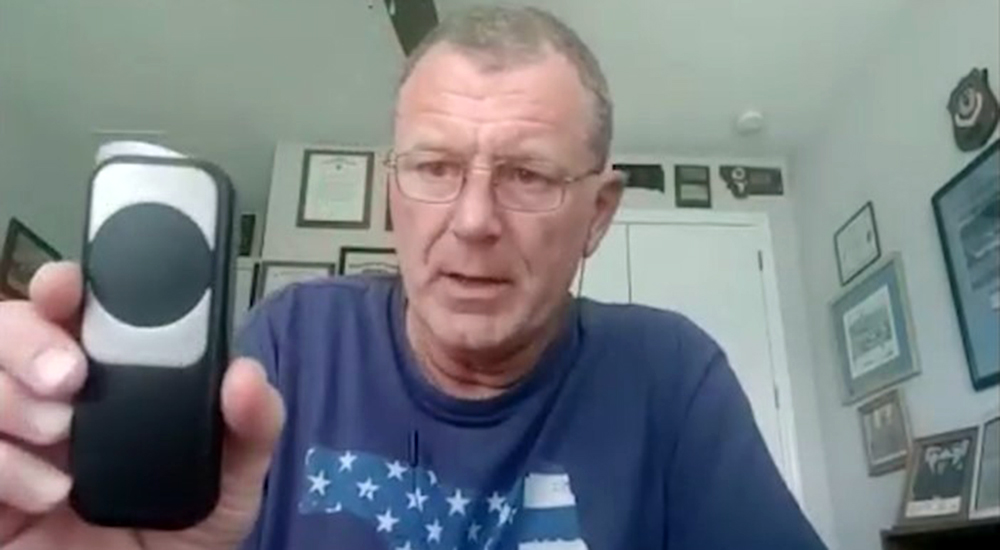Daniel Steele grew up feeling a lot like his last name: strong and almost indestructible. After all, that’s how they raise football and baseball athletes in the small town of Faulkton, South Dakota.
His 27-year career in the Air Force only solidified that feeling.
“I felt pretty much immortal as a young man,” said Steele (pictured above at home). “It was a sign of weakness growing up to seek any type of medical attention.”
It took two heart attacks and a quadruple bypass surgery this summer to change the 54-year-old’s mind.
“It certainly woke me up to the idea of mortality,” he said. “And for the first time, I felt at risk. I knew that I needed to take precautions but also receive care for my heart condition.”
That’s when Steele was introduced to telehealth by Kimberly Braswell, his cardiology nurse practitioner at James A. Haley Veterans’ Hospital (JAHVH) in Tampa, Florida.
Monitored at home for almost all post-surgical care
Braswell, along with physician assistant Brenda Hoy and registered nurse Nakeeta Moore, lead a new pilot program that enables Steele to remain home for almost all his post-surgical care and monitoring.
The cardiology pilot program issues Veterans VA equipment such as Apple iPads, blood pressure monitors, scales, pulse oximeters, thermometers and stethoscopes. The equipment enables Veterans to send vital signs to their VA care team from anywhere in the country.
“The technology is impressive and it all runs off Bluetooth,” said Braswell. “As a provider, I can see their heart rate, read their blood oxygen levels, see the heart rhythm, hear the heart and lung sounds and get their temperature during a video appointment. These devices are patient-friendly and are saving Veterans a trip to the nearest VA facility.”
Innovation is nothing new for Braswell and her team at JAHVH. The hospital is one of four VA Connected Health Implementation Centers of Excellence.
Continuous virtual care eases many concerns
In 2019, the JAHVH cardiology team initiated the Veteran Engagement Through Electronic Resources and Notifications Study (VETERANS). It’s an Apple Watch pilot program that enabled Veterans to conduct electrocardiograms from anywhere and share the results with their VA care team.
“The ability to provide continuous care to our Veterans has always been our mission,” Braswell said. “But this current pilot program comes at a time when there are so many limitations and concerns and a reluctance to come into the hospital. This type of virtual care eases many of those concerns and reserves in-person appointments for the Veterans who need them.”
Steele was grateful for the opportunity to use telehealth. He said he would recommend this cardiology pilot program to anyone, regardless of their comfort level with technology.
“What they’ve done is outstanding,” said Steele.
Learn more about VA telehealth.
This story is courtesy Connected Care Communications.
Topics in this story
More Stories
Moving the body in gentle ways is good for you, and with this practice, you don’t even have to get out of your chair!
Take the Five Days to be Healthier Together challenge to be stronger and healthier.
VA is putting Veterans in the driver's seat for making medical appointments.






